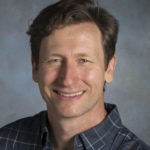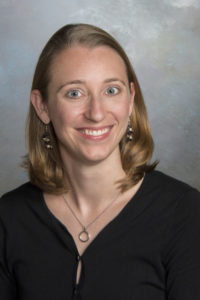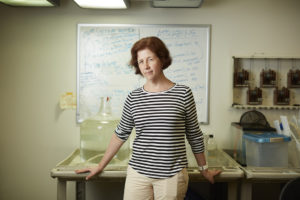
Assistant Biology Professor Brad Lamphere
Assistant Professor of Biology Brad Lamphere, an expert on the ecology and evolution of freshwater fishes, offered up his insight on turtles to The Free Lance-Star after a photo of three turtles stacked on top of each other in the Rappahannock Canal went viral, garnering millions of views worldwide.
Brad Lamphere, an assistant professor of biology at the University of Mary Washington, said turtles enjoy basking on dry things in water.
“Sometimes the dry thing is another turtle,” he said. “I’ve seen a double-decker before, but not a triple.” Read more.

